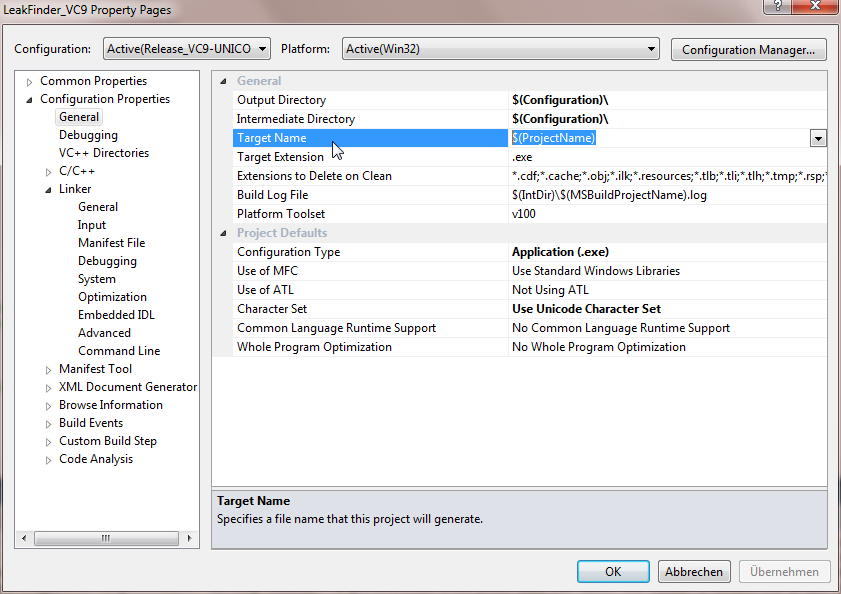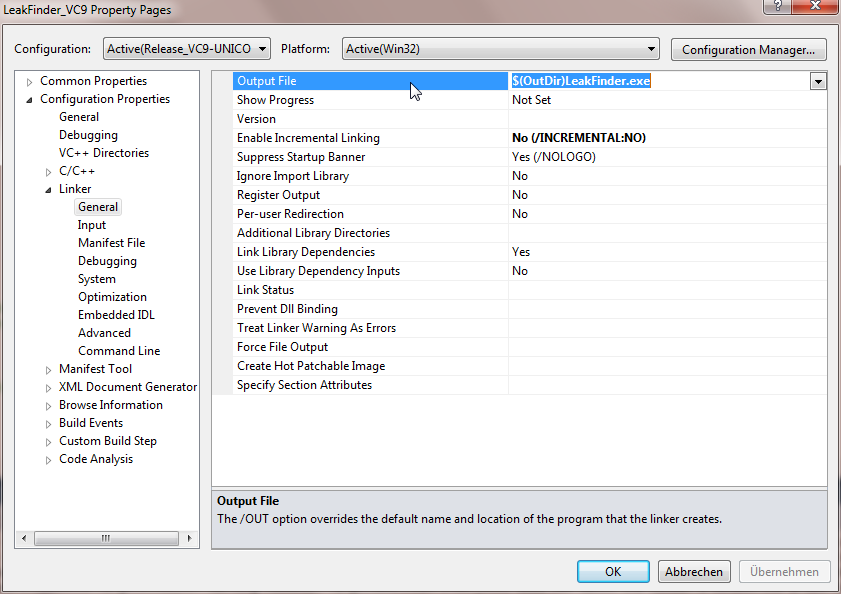If you convert a project from VC5/6/2002/2003/2005/2008 to VC2010, you will sometimes get an warning during the conversion (UpgradeLog.XML) and during the link phase os your build. This warning might look like:
1>...Microsoft.CppBuild.targets(990,5): warning MSB8012: TargetPath(...LeakFinder_VC9.exe) does not match the Linker's OutputFile property value (...LeakFinder.exe). This may cause your project to build incorrectly. To correct this, please make sure that $(OutDir), $(TargetName) and $(TargetExt) property values match the value specified in %(Link.OutputFile).
or
1>...Microsoft.CppBuild.targets(992,5): warning MSB8012: TargetName(LeakFinder_VC9) does not match the Linker's OutputFile property value (LeakFinder). This may cause your project to build incorrectly. To correct this, please make sure that $(OutDir), $(TargetName) and $(TargetExt) property values match the value specified in %(Link.OutputFile).
The problem is, that the following two settings are not identical (Target Name, Target Extension):

If you match those two, the warning will be gone 😉
For example, if you have named your EXE in Debug-Builds: “MyAppd.exe” and in Release-Builds “MyApp.exe”, I suggest that your only change the “Target Name” in the General-Page to “MyAppd” (for Debug) and “MyApp” (Release) or ($(ProjectName) if it is the same name as the project).
Then you must also change the “Linker | General | Output File” to the default setting: “
If you want to change the output directory, you should the the “General | Output Directory” setting.
More info about this conversion problem can be found here:
Visual Studio 2010 – $(TargetName) macro
Visual Studio 2010 C++ Project Upgrade Guide
